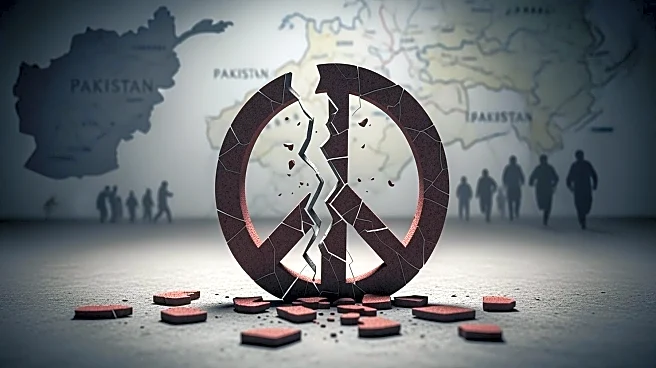What's Happening?
Renewed fighting between Afghanistan and Pakistan along their shared border has resulted in the deaths of more than a dozen Afghan civilians and injuries to over 100 others. The clashes began early Wednesday,
with both sides trading fire. Afghanistan claims to have killed 58 Pakistani soldiers in retaliation for violations of Afghan territory, while Pakistan reports 23 of its troops were killed. The violence has led to calls for a ceasefire, with Pakistan accusing Afghan forces of unprovoked attacks.
Why It's Important?
The escalation of violence along the Afghanistan-Pakistan border poses a significant threat to regional stability. The conflict disrupts trade and affects local communities, with border closures impacting economic activities. The humanitarian toll, with civilian casualties and displacement, underscores the need for urgent diplomatic intervention. The situation could further strain relations between the two countries, complicating efforts to address cross-border militancy and security challenges.
What's Next?
Afghanistan has sought a ceasefire, and Pakistan has indicated willingness to engage in dialogue. The international community, including countries like Saudi Arabia and Qatar, may play a role in facilitating negotiations. The closure of border crossings has stranded vehicles and disrupted trade, adding pressure on both governments to resolve the conflict. Continued diplomatic efforts will be necessary to prevent further escalation and address the root causes of the violence.
Beyond the Headlines
The conflict highlights the ongoing challenges in managing border security and addressing militant activities in the region. The humanitarian impact raises ethical concerns about the conduct of military operations and the protection of civilians. Long-term peace will require addressing historical grievances and fostering cooperation between Afghanistan and Pakistan. The involvement of regional powers in brokering peace underscores the broader implications for international diplomacy.











